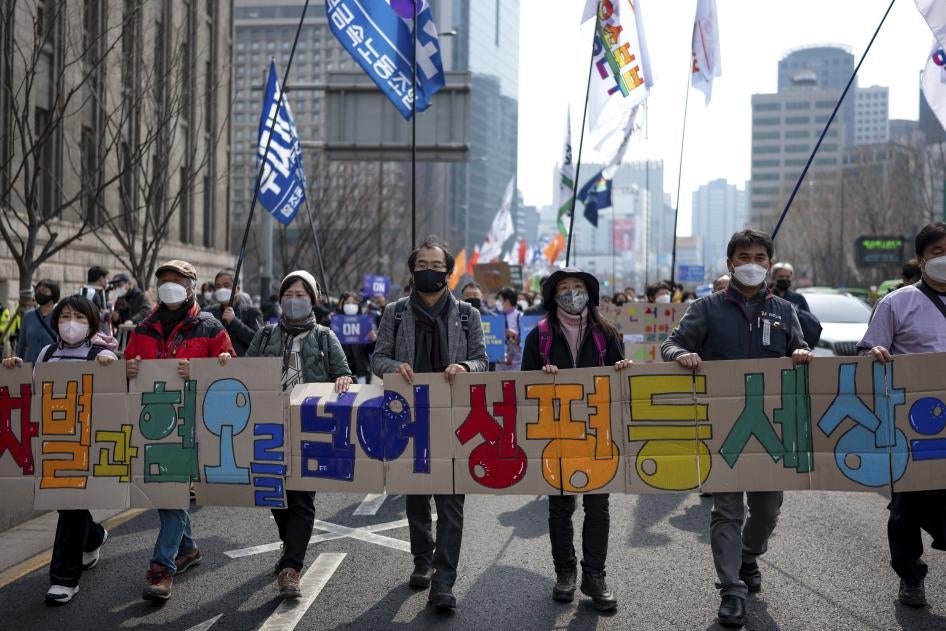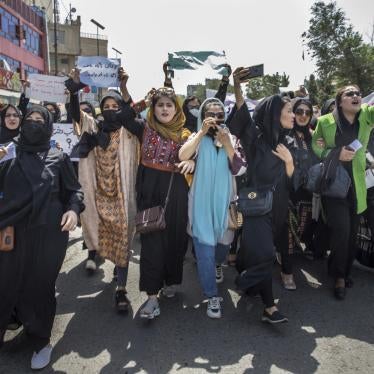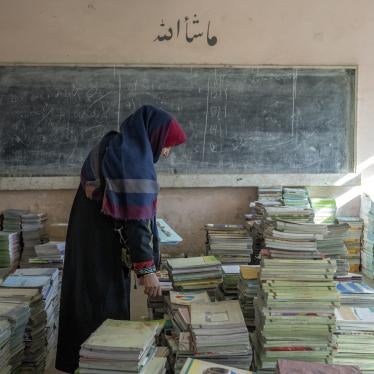For women in South Korea, this International Women’s Day marks a year of increasing adversity. Access to safe abortions remains impeded, an attempt to broaden the legal definition of rape was blocked, and there was another uptick in digital sex crimes.
President Yoon Seok Yeol pandered to anti-feminist voters during his presidential campaign last year by pledging to abolish the Ministry of Gender Equality and Family, which strives to end violence against women, support survivors of sexual violence, and improve access to gender-responsive health systems. However, he has not followed through with this plan since assuming office. In February, South Korea’s Justice Department scrapped the gender equality ministry’s plans to revise the legal definition of rape to include nonconsensual sex (as opposed to sex that is enforced through “violence or intimidation”), reflecting outdated and dangerous views about the nature of sexual assault.
Despite the decriminalization of abortion in 2021, many South Korean women are unsure how to find healthcare providers that can help them have safe and legal abortions due to lack of information and a legal vacuum. Access to womenonweb.kr, a website that the Korea Communication Standards Commission (KCSC) blocked in December 2020 that provides information on women’s health and supports online orders of abortion pills, remains blocked, denying women access to an essential medicine as defined by the World Health Organization.
Gender-based violence – including digital sex crimes – are widespread, underreported, and seldom punished to the full extent of the law in South Korea. Data published in 2021 by the Women’s Human Rights Institute of Korea showed that digital sex crimes that targeted teenagers, the vast majority of them female, had increased elevenfold since 2018, and victims of digital sex crimes, including illegal filming, are often blackmailed, sometimes in the form of demands for more explicit pictures.
South Korean government agencies’ seeming lack of concern for issues related to women’s bodily autonomy and safety have only compounded the divisive and politically charged nature of any discussion related to women or feminism. Concrete and timely action from the government, starting with preserving the Ministry of Gender Equality and Family and providing support for its activities, and enabling access to the abortion pills mifepristone and misoprostol, will send the message that women’s rights are non-negotiable. The authorities should also do more to tackle digital sex crimes.










